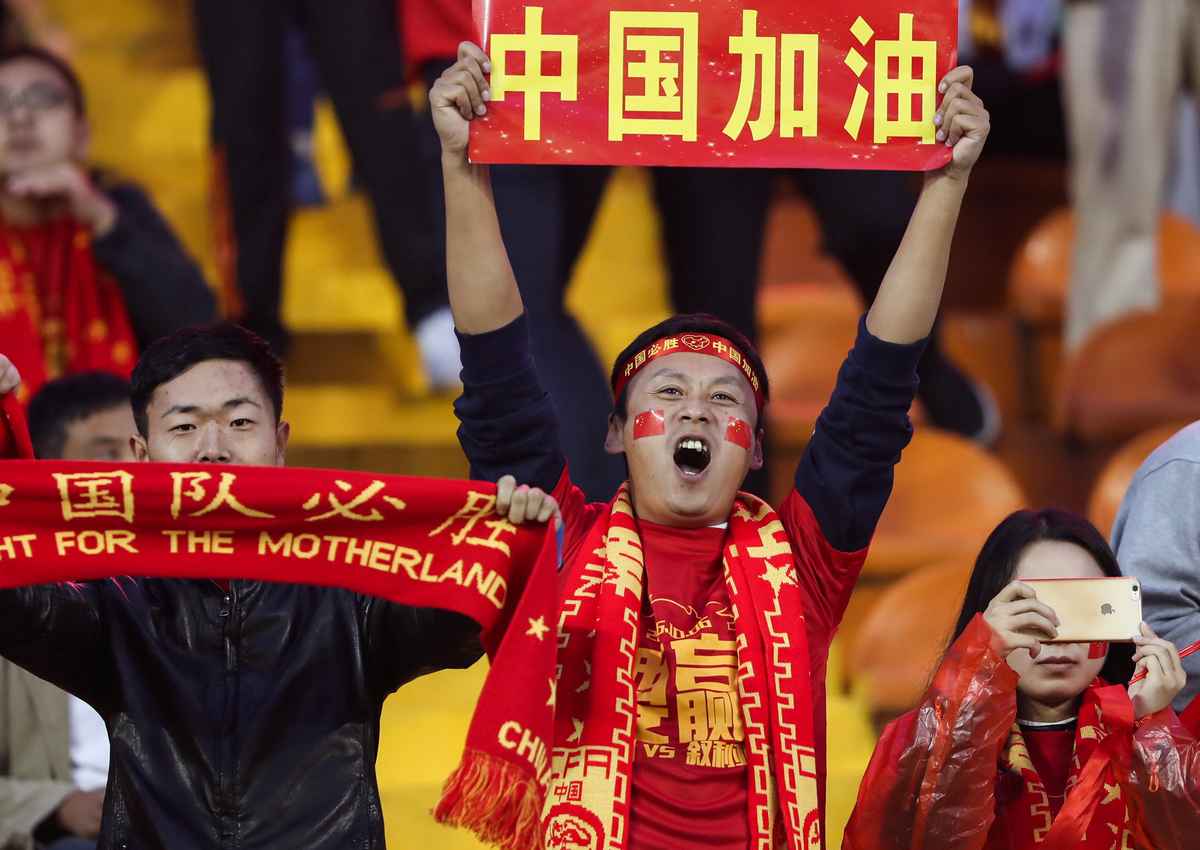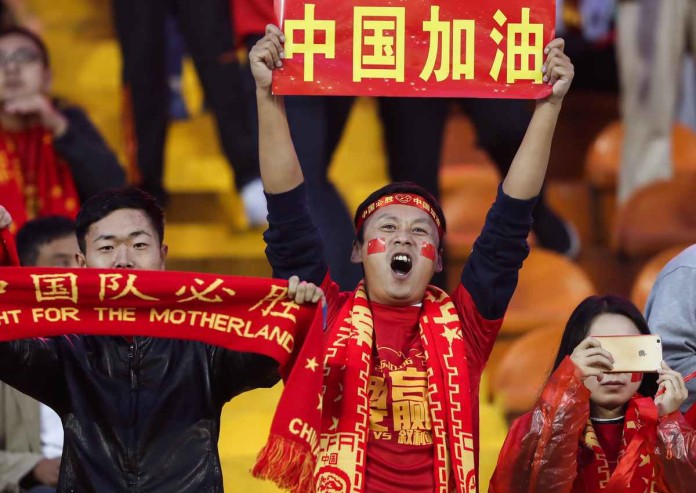DOHA – An Asian zone World Cup qualifier between the bottom two sides in Group A, who have won just one game in eight between them, may not seem a particularly noteworthy match.
But when China face Qatar in Kunming on Tuesday, it will also be a clash between arguably the most ambitious and certainly in their region biggest spending nations who, in the long-term, could both play a central role in shaping the sport’s future.
In the short-term both could deal an almost fatal blow to each other’s already very slim chances of reaching Russia 2018.
“It would be easy simply to dismiss the China Qatar game as a dead rubber or as a match between weaker nations on the periphery of world football,” said Professor Simon Chadwick, a British-based Asian football expert.
“However, these are two aspiring football nations, with major football ambitions.
“Both nations still hold out hope of making Russia 2018 and failure to do so would be an embarrassment and a setback in their desire to be considered as being among the world’s leading football nations.
“The game therefore has huge symbolic meaning.” It is the World Cup where both countries wish to make a mark on the global game.
Both have invested heavily to fuel their ambitions.
China, which aims to be a footballing superpower by 2050, has spent an estimated $1 billion developing its domestic game, says Chadwick.
It harbours hopes of hosting its own World Cup and, one day, winning football’s greatest prize.
Qatar is in the middle of transforming itself by splurging $200 billion-plus to host the 2022 tournament. The stadiums alone for that World Cup will cost some $10 billion.
Both countries’ ambition also represents a challenge to the established world football order, says China-based Cameron Wilson, founder of the Wild East Football website.
“I think it is clear the balance of power is shifting away from Europe, albeit slowly, and it’s no coincidence that money is a big part of that – neither Chinese nor Qatari football lacks serious financial backing,” Wilson told AFP.
But with ambition comes pressure, and neither nation is responding too well at the moment.
China have one point from their four qualifying games.
Their last home match – a 1-0 defeat by Syria in Xi’an – saw angry fans protest in the streets.
World Cup 2022 hosts Qatar are only slightly better off.
They have clawed three points from four matches, following a 1-0 victory in Doha last month against Syria.
But only the top two teams from the group qualify automatically for Russia.
Iran head the group with 10 points and Uzbekistan are second with nine. The third-placed team will have a play-off chance to get to Russia, the position currently held by South Korea with seven points.
Emphasising how desperate China and Qatar are to qualify for the 2018 tournament, both have sacked their coaches during the current round of qualifying.
Notably, China have appointed World Cup winning-coach Marcello Lippi on a reputed $20 million-a-year contract to revive hope in their almost moribund World Cup campaign.
Tuesday’s game will be his first big test in charge of “Team Dragon”.
Qatar turned back to popular former coach Jorge Fossati after losing their first two matches in this round of qualifying, despite storming through the last stage.
Lippi said he and the Chinese nation are hoping for a miracle.
Fossati is insistent that whatever happens in Kunming will not be decisive.
“We are very optimistic about the result of the game in China, but it is not a definitive game,” he said before his team flew out.
Last week China played a behind closed doors friendly in preparation for Tuesday’s match.
In contrast, Qatar beat Russia 2-1 in Doha in a match broadcast live on television.
“We wanted to help Marcello if he wanted to watch the game,” joked Fossati.
Defeat on Tuesday and the costs could be high.
For Qatar, it could mean the end of any hope of qualifying for their first World Cup before they host in 2022, and showing a sceptical footballing world they deserve to host the tournament.
China could pay a price off the pitch, says Chadwick, where continued football failure could unleash the “potential for political and socio-cultural fallout at home”.







